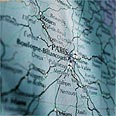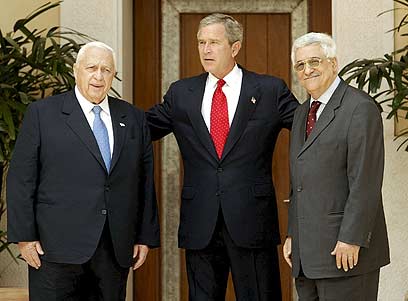
Framework (Illustration)
Road Map for Peace
None
The "Road Map" for peace is the name of a diplomatic framework devised by the Quartet – the United States, the European Union, Russia and the United Nations – in 2002, with the aim of resolving the Israeli-Palestinian conflict in the form of a two-state solution.
The tenets of the plan were first outlined by US President George W. Bush, who called for an independent Palestinian state living side by side with Israel in peace: "The Road Map represents a starting point toward achieving the vision of two states, a secure State of Israel and a viable, peaceful, democratic Palestine. It is the framework for progress towards lasting peace and security in the Middle East…"
Bush allotted the Road Map three years, meant to help the new Palestinian state to stabilize its governmental systems. At the end of three years, a permanent agreement based on the 1967 borders was to be signed between Israel and the Palestinian Authority, effectively forming Palestine across the West Bank and Gaza Strip. The Road Map stipulated a detailed time table for each one of its phases.

Israeli PM Sharon (L), US President Bush and Palestinian Palestinian President Abbas (Archives: AP)
The plan required the PA to make democratic reforms and relinquish and fight all forms of terror in exchange for statehood. Israel, for its part, was to support and accept the fledgling Palestinian regime and end its settlement activity.
Bush pledged the support of the US, European Union and World Bank for the budding Palestinian economy, preconditioning that support with the Palestinians pledge to fight terror, form a constitution and eliminate corruption in public service.
The Israeli government officially sanctioned the Road Map – with certain reservations – in May 2003, making then-Prime Minister Ariel Sharon's cabinet the first to ever acknowledge the Palestinians' right to a state.
Though the Road Map was never implemented, the continuous backing it received from the US administration has kept it from being shelved. It still remains the basic outline for the resolution of the Israeli-Palestinian conflict.










